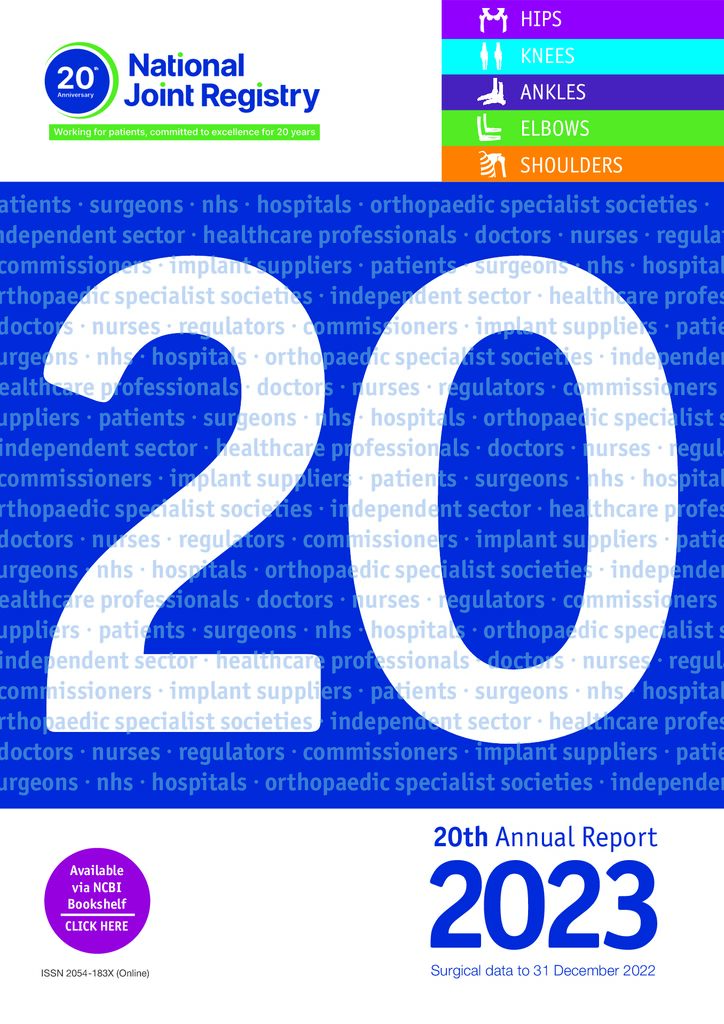National Joint Registry 20th Annual Report 2023
This year 2023-24, the NJR celebrates its 20th anniversary. The NJR began capturing hip and knee data in 2003 across England and Wales, and expanded to incorporate ankle, elbow and shoulder joints and the geographic areas of Northern Ireland, the Isle of Man and Guernsey. Representing a great number of patients, the NJR now has over 3.7 million records and is the largest orthopaedic registry in the world.
The registry’s purpose is to record patient information and provide data on the performance and longevity of replacement joint implants, the surgical outcomes for the hospitals where these operations are carried out, and on the performance outcomes of the surgeons who conduct the procedures. We produce this Annual Report, summarising our work and sharing the analysis of data, visually in tables and graphs, for procedures across each of the joints, as well as implant and hospital.
The report also includes some short research study excerpts which showcase the NJR’s contribution to orthopaedic research activity, demonstrating the value of the use of these collected data. This year we have also included two reports from our fellows who have been looking at the issue of sustainability in the sector. Registry data are made available under strict security conditions to medical and academic researchers, to further progress the pool of work in measuring and understanding which practices provide better outcomes.
The NJR has shown that orthopaedic surgery, as one of the main users of implant devices in the UK, is demonstrating the highest standards of patient safety with regard to their use. A key message from the report is that safety and clinical outcomes continue to improve, as identified through the reduction of revision surgery.
The NJR’s data collection and analysis provide the evidence to drive the continuous development and implementation of measures, to ensure implant safety and the enhancement of patient outcomes is always top of the agenda, alongside a focus on reduced revision rates year-on-year, as well as improvements in standards in the quality of care whilst also addressing overall value for money in joint replacement surgery.
The NJR research programme includes supporting fellowships and application requests to use NJR data. NJR data have been used for a wide range of research studies, which have highlighted and informed best practice in joint replacement surgery, for the benefit of patients.
NJR data was also used in the development of the NJR Patient Decision Support Tool. This can be used by patients considering joint replacement surgery to help them understand the potential benefits and risks and to make informed choices about their treatment in shared decision-making discussions with their clinicians. The NJR has identified, and continues to identify, the effects of the COVID pandemic on the number of joint replacement procedures being undertaken, and the detrimental effect on patient waiting times.
The NJR was recognised by the Independent Medicines & Medical Devices Safety Review, chaired by Baroness Julia Cumberlege, which published its report and findings in 2020, as a ‘leader in its field’ and ‘being an exemplar registry with world-leading expertise’. The NJR was thereafter identified in the government response and implementation reports as being ‘widely regarded as setting international best practice in analysing outcomes for device procedures.’
Further information: The NJR’s dedicated Annual Report website


